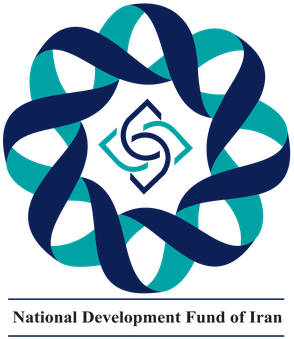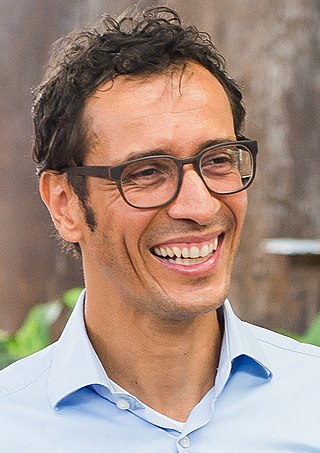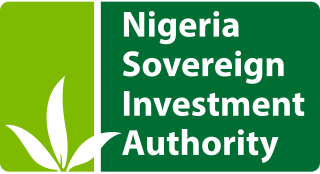Related Research Articles
A pension fund, also known as a superannuation fund in some countries, is any plan, fund, or scheme which provides retirement income.
The Government Pension Fund of Norway comprises three entirely separate sovereign wealth funds owned by the government of Norway.

The Abu Dhabi Investment Authority is a sovereign wealth fund owned by the Emirate of Abu Dhabi founded for the purpose of investing funds on behalf of the Government of the Emirate of Abu Dhabi. It manages the Emirate's excess oil reserves and is estimated to manage $790 billion.

GIC Private Limited is a Singaporean sovereign wealth fund that manages the country's foreign reserves. Established by the Government of Singapore in 1981 as the Government of Singapore Investment Corporation, of which "GIC" is derived from as an acronym, its mission is to preserve and enhance the international purchasing power of the reserves, with the aim to achieve good long-term returns above global inflation over the investment time horizon of 20 years.
The Kuwait Investment Authority (KIA) is the Middle East's oldest sovereign wealth fund, managing the state’s reserve and the state’s future generation fund (FGF).
The Stabilization fund of the Russian Federation was a sovereign wealth fund established based on a resolution of the Government of Russia on 1 January 2004, as a part of the federal budget to balance the federal budget at the time of when oil price falls below a cut-off price, currently set at US$27 per barrel. In February 2008 the Stabilization Fund was split into a Reserve Fund, which is invested abroad in low-yield securities and used when oil and gas incomes fall, and the National Welfare Fund, which invests in riskier, higher-return vehicles, as well as federal budget expenditures. The Reserve Fund was given $125 billion and the National Welfare Fund was given $32 billion. By the end of 2016 the two funds consisted respectively of $38.2 and 72.2 billion.

A sovereign wealth fund (SWF), sovereign investment fund, or social wealth fund is a state-owned investment fund that invests in real and financial assets such as stocks, bonds, real estate, precious metals, or in alternative investments such as private equity fund or hedge funds. Sovereign wealth funds invest globally. Most SWFs are funded by revenues from commodity exports or from foreign-exchange reserves held by the central bank.
The Canada Pension Plan Investment Board, operating as CPP Investments, is a Canadian Crown corporation established by way of the 1997 Canada Pension Plan Investment Board Act to oversee and invest the funds contributed to and held by the Canada Pension Plan (CPP).
The Santiago Principles or formally the Sovereign Wealth Funds: Generally Accepted Principles and Practices (GAPP) are designed as a common global set of 24 voluntary guidelines that assign best practices for the operations of Sovereign Wealth Funds (SWFs). They are a consequence of the concern of investors and regulators to establish management principles addressing the inadequate transparency, independence, and governance in the industry. They are guidelines to be followed by sovereign wealth fund management to maintain a stable global financial system, proper controls around risk, regulation and a sound governance structure.

The National Development Fund of Iran is Iran's sovereign wealth fund. It was founded in 2011 to supplement the Oil Stabilization Fund. NDFI is independent of the government's budget. Based on Article 84 of the Fifth Five-year Socio-Economic Development Plan (2010–2015), the National Development Fund was established to transform oil and gas revenues to productive investment for future generation. It is a member of the International Forum of Sovereign Wealth Funds and therefore is signed up to the Santiago Principles on best practice in managing sovereign wealth funds. Withdrawing any money from this fund requires Khamenei's permission.

The Sovereign Wealth Fund Institute or SWF Institute, or SWFI, is a global corporation analyzing public asset owners such as sovereign wealth funds and other long-term governmental investors. Initially, the Sovereign Wealth Fund Institute focused solely on sovereign wealth funds. It has branched out to cover all types of public institutional investors. The institute sells its subscription and API/datafeed services as a financial data vendor but provides information to the media as well. Incorporated in 2008, it was founded by Michael Maduell and shortly he brought in Carl Linaburg. Carl Linaburg left the organization in 2017. In late 2022, Lakshmi Narayanan of the Patel Family Office was named Chairman of SWFI.

The Russian Direct Investment Fund is Russia's sovereign wealth fund established in 2011 by the Russian government to make investments in companies of high-growth sectors of the Russian economy. Its mandate is to co-invest alongside the world’s largest institutional investors, direct investment funds, sovereign wealth funds and leading companies.
CDP Equity S.p.A., until 2016 known as Fondo Strategico Italiano S.p.A., is a majority state-owned Italian sovereign wealth fund established in 2011. Its purpose is to invest in strategic Italian companies to help them to compete globally.

Jean-Claude Bastos de Morais is a Swiss-Angolan entrepreneur who has founded and led several businesses over the course of his career. Among these are Quantum Global Group, an international investment group with a particular focus on Africa and Banco Kwanza Invest, Angola's first investment bank.

The Nigeria Sovereign Investment Authority is a Nigerian establishment which manages the Nigeria sovereign wealth fund, into which the surplus income produced from Nigeria's excess oil reserves is deposited. This sovereign wealth fund was founded for the purpose of managing and investing these funds on behalf of the government of Nigeria. The fund was established by the Nigeria Sovereign Investment Authority Act 2011, signed in May 2011, and commenced operations in October 2012. It is intended to invest the savings gained on the difference between the budgeted and actual market prices for oil to earn returns that would benefit future generations of Nigerians. The fund was allocated an initial US$1 billion in seed capital, and, an additional $0.60billion has been contributed to date by the current administration. In December 2021 the fund had US$ 2.56 billion in assets under management.

The Fundo Soberano de Angola is the sovereign wealth fund of Angola. It is a member of the International Forum of Sovereign Wealth Funds, and therefore has signed up to the Santiago Principles on best practice in managing sovereign wealth funds. The FSDEA is meant to play an important role in promoting Angola’s social and economic development and generating wealth for its people. The fund was rated by the SWFI in February 2015 with a ranking of 8 out of 10.

Paulo Roberto Nunes Guedes is a Brazilian economist and co-founder of the investment bank BTG Pactual. He is also a co-founder of the think-tank Instituto Millenium, and was the economic advisor for the campaign of President Jair Bolsonaro. Guedes served as the Minister of Economics of Brazil through the entirety of the Bolsonaro presidency, from 1 January 2019 to 1 January 2023.
The Indonesia Investment Authority (INA) is the sovereign wealth fund of Indonesia. The INA was founded by the Indonesian Government in 2021 to strengthen the country's economy by diversifying into new asset classes. INA was launched in February, 2021, with a target of managing $24.5 billion of assets. Unlike sovereign wealth funds of other countries which manage excess oil revenues or foreign exchange reserves, the INA seeks foreign funds as co-investors to finance the country's economic development.
Alberto J. Safra is a Brazilian-born businessman who founded ASA Investments and is a member of the Safra family.
References
- 1 2 3 SWF Institute. "Sovereign Fund of Brazil". SWF Institute.
- ↑ Irina Peaucelle. "Sovereign Wealth Funds, BRIC and Sustainable Development" (PDF). Paris School of Economics.
- ↑ "O Fundo Soberano do Brasil é um desastre". EXAME (in Brazilian Portuguese). Retrieved March 17, 2020.
- ↑ "MP da liberdade econômica extingue Fundo Soberano do país". G1 (in Brazilian Portuguese). Retrieved March 17, 2020.